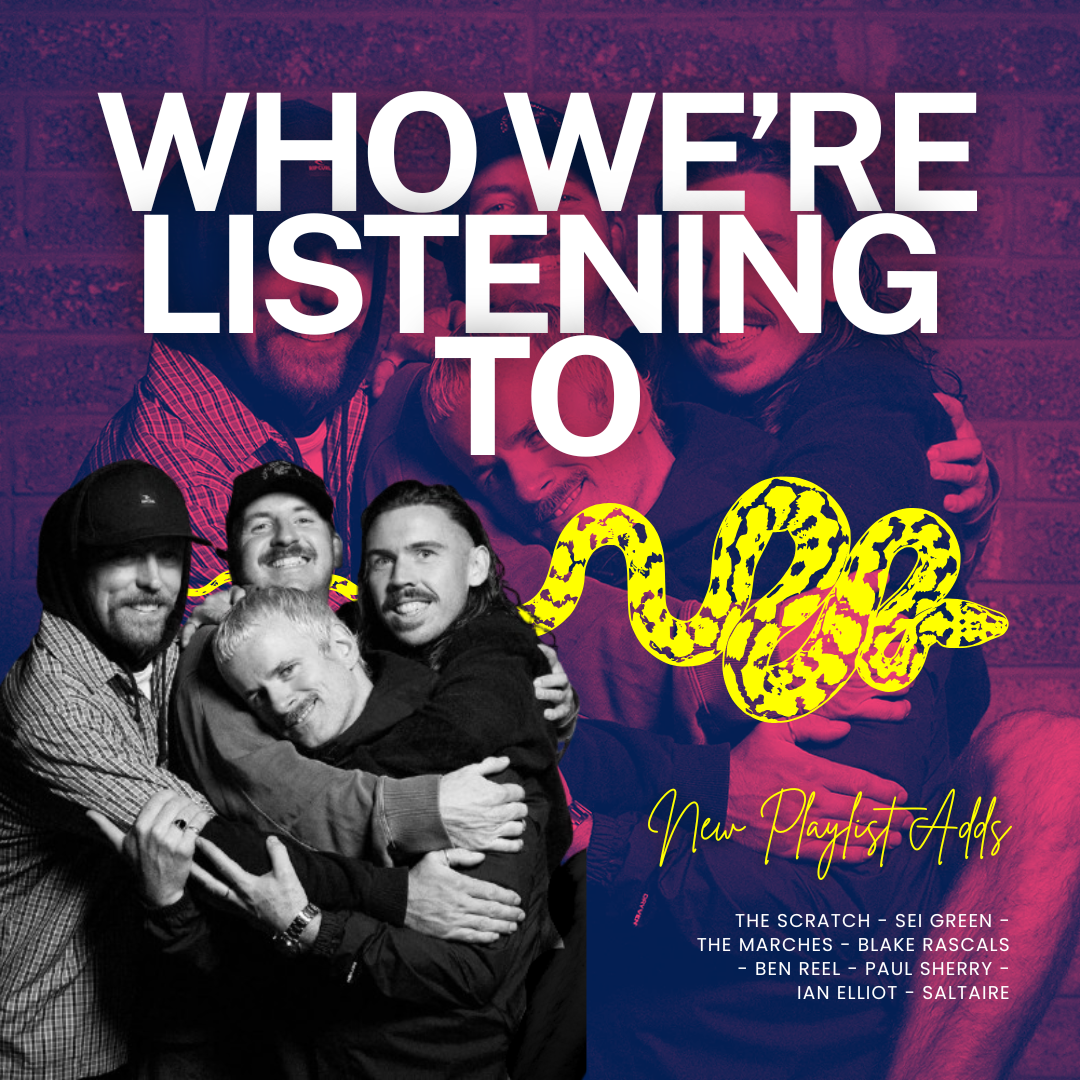Musosoup: Is it worth it? DIY + Indie PR
Rhí gives you an insight into the new pay-as-you-go PR platform
To listen to the podcast chat about the topic, click the Spotify or YouTube playbacks below!
Instead of hiring a publicist like myself, or if you are unsigned and do not have a PR team to secure coverage for you, Musosoup is a relatively new way of tackling your own PR. Like all websites, apps and new tools, it has its pros and cons, so it’s only right to talk about both. As I have seen and used the platform from both sides, as a publicist to support my PR campaigns and as a curator to find new music, I hope to bring an all-round perspective to Musosoup, which appears to be growing in popularity.
How does Musosoup work?
Say you have a brand new single that you would like to promote on Musosoup. It costs about €35-€40 to list the song on the platform, and get it into their system. Immediately, this might be a disadvantage of the platform, because for independent bands and artists, €40 isn't anything to snuff at, as every euro counts. This fee is only to get the song into the Musosoup marketplace and in front of curators - it is not a deposit used to pay for coverage later in your campaign.
Your Musosoup campaign should run for approximately 25 to 30 days, about one month, and a pro here is that if you get no offers, it is stated that you will be refunded. However, it is highly unlikely that you will receive zero offers, as the song would have to be terrible for you to avail of a refund. You can be very confident knowing that you will get offers, which is considerably positive. Personally, I have used Musosoup to support the campaigns of two or three clients and have consistently received at a minimum, approximately 50 offers for each band, within the first week. It is highly likely that many more offers will come into your dashboard as the weeks progress, meaning you may be looking at 85+ offers to cover your music.
Do I have to accept every offer?
The best thing about Musosoup is that you are in full control to accept the offers you want - there are no hidden fees or minimum acceptance requirements. If you want to accept 5 of 90 offers, or accept 80 of 90 offers, then the choice is yours. It is fully your listing and your budget.
What if I can’t afford or don’t like the offers? Is my money wasted?
Another strong feature of Musosoup is that you are never left empty-handed, because every paid offer comes with a free alternative. If you don't want to pay for a piece of coverage, you can opt for something small that is free. Typically a free alternative is a playlist add (permanent or temporary, dependent on the curator), a Twitter mention, Instagram story or SoundCloud repost. A free playlist add appears to be the most common free alternative, and it is what I also offer as a curator.
Technically, if you have a very tight budget, you could just list your song on Musosoup for the €35-€40 fee, accept no paid offers, but accept all free alternatives. This might be something like 50 playlist adds, 5 twitter mentions and 2 Instagram story shares. If your focus is solely on playlist adds, then this is a substantial way of getting them, however, the point of Musosoup is to obtain pieces of written coverage, to get people reading and hearing about your music, and for you to build up some coverage credibility. Publicists, labels and fans love to see that you've been featured here, here and here.
How much are paid offers?
I have seen coverage offers from anywhere between £4 and up to £30 (I’m unsure if you can change the pricing to your local currency), so you can take time to decide what you might like to pay for. It is very important to explore each offer and make sure that you're getting your money's worth. This can be difficult to quantify, as it is down to what you would like to receive and the content style of the curator. I believe if you are paying for anything around £10 pounds and above, I would aim for a piece of coverage that contains at least 200 words.
You will get some strong, worthwhile offers, but also come across those that are somewhat greedy, for example, a £15-£20 pound review that only contains 100-150 words. Personally, this is not substantial for the price, as your own press release is most likely going to be around this word count anyway. So, for the £15-£20 pound mark, try to identify curators that offer a minimum of 200-250 words of a review, which also includes a good press quote, all press assets embedded into the feature, and promotion of the article across all socials, which should hopefully have a good following.
For smaller / cheaper curators, that likely put as much effort into their promotional content as much as a £15-£20 pound curator, a 100-150 word review is more understandable. But remember, there is a chat box on Musosoup where you can directly message the curator, so don't be afraid to ask questions if you need to, or do a bit of haggling.
So at this point, you will find that to use Musosoup you need to be:
At least a little bit interested in PR
Willing to put some time and effort into writing a good press release
Be comfortable regularly checking in with the platform, exploring the different offers, waying up the best choices and making sure you accept all free alternatives for offers you don't accept.
Your first campaign might be overwhelming, as you will recieve the majority of offers in the first few days. You may dread going through each offer, however, know that you can pace yourself. Your release will be listed for about one month, and you will most likely have a week or two to accept offers. Check in on five to ten offers every one to two days, and that should keep you on top of things. You've paid your fee, so get every penny's worth! Don’t let those free alternatives slip by.
Musosoup V A Publicist
If you're nifty on the laptop, and willing to put time into writing a good press release, getting your assets together and managing the campaign, then Musosoup is a good tool, if you are not working with a publicist or label. However, a publicist may have the upper hand for certain aspects of a PR campaign. For example, Musosoup is predominantly driven by independent creators - you won't find RTÉ, the BBC, Hotpress, Kerrang!, Rolling Stone, or major publications on the platform. This is where a publicist exceeds what Musosoup can do, because they will have better access to top publications, as they have done research and have built relationships with people in the media nationally and internationally. Musosoup would not particularly be the top networking-based or relationship-building approach to PR, and it is also very much focused on written media coverage. From personal experience, you will also not receive much radio airplay opportunities from Musosoup. Radio support is crucial for a release, so this is again where a publicist might have the upper hand.
However, another pro for Musosoup is that if you are a band or artist on the heavier side or more eccentric of things, you might unfortunately know that you're not going to receive much radio support anyway, and perhaps it is not an aspect you are focusing on for a particular release. At the end of the day, you need to look at your sound, your PR aspirations and how you are going to get there, as PR is not a one size fits all process.
Musosoup from a curator’s perspective
It is great that bloggers and journalists can make a small income from Musosoup, and get paid for their time writing an article, embedding all of the assets, putting it into their website and creating all of the social content to promote it. For many curators, the payment goes straight back into hosting their website, or paid ads to promote the articles. It is also a good way to discover new music of course, and build credibility as a blogger or journalist too, as you must get accepted into Musosoup and you can earn reviews based on your content.
However, there is less of a relationship-building element to Musosoup compared to normal email marketing or traditional PR. For bands that have paid me to cover their release, I haven’t particularly had the chance to build a relationship with them, as activity is all driven by pressing buttons and sending links. There is very little discussion or personal messages, though this would very much suit some bands and curators. It’s quick, easy and both sides get exactly what they want out of it.
Overall, I would recommend for bands and artists to try out the platform at least once. If possible, dedicate a minimum of €100 to your campaign, and enjoy navigating the platform and seeing if it is something you can invest in for future releases.
I hope that was a good insight into Musosoup! If you have any questions you can get in touch with me on my socials, @cobrapromotions, or send me an email and I'll try to help as best I can. I am relatively new to the industry and have loads to learn, so I'm using what I have learned so far to help independent bands and artists navigate the music industry.
If you have any topic suggestions or tools for me to try out and give a review, dont be afraid to get in touch too.
Cobra Promotions is proudly affiliated with DROP ROCKET







